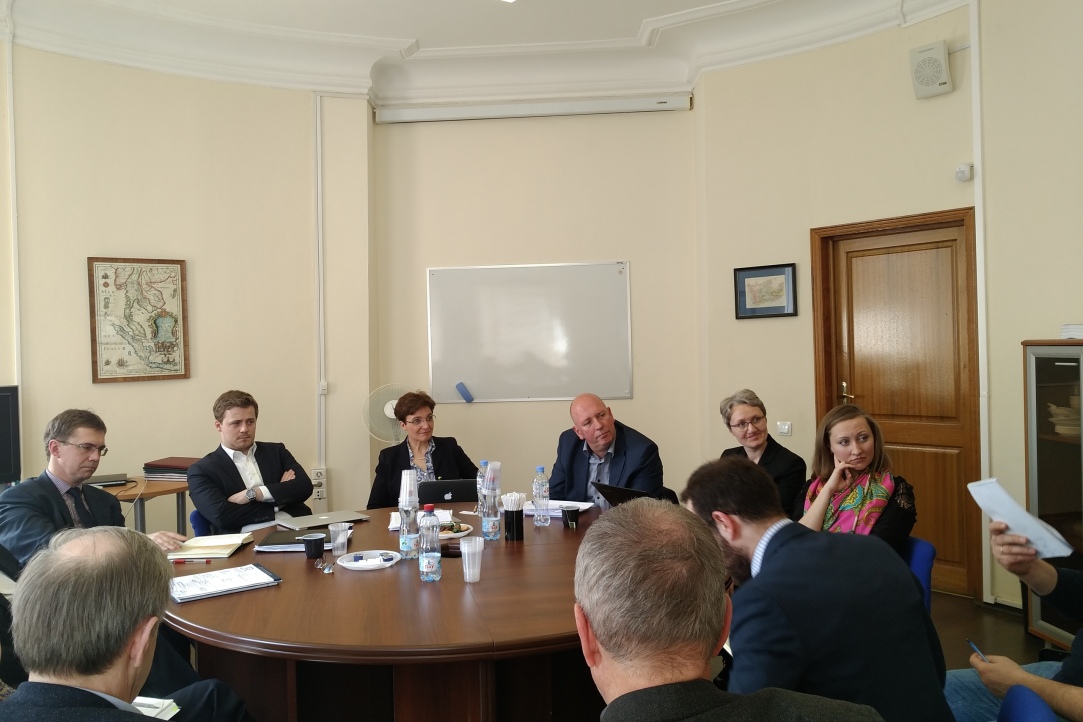HSE's Programmes in Political Science Receive International Accreditation

Bachelor’s programme ‘Political Science’ and Master’s programmes ‘Applied Politics’ and ‘Politics. Economics. Philosophy’ have been granted international accreditation by Central Evaluation and Accreditation Agency (ZEvA), based in Hannover, Germany.
Experts from various European universities have come to the overall conclusion that the ‘study programmes in Political Science offered at the Higher School of Economics fully live up to international standards’. ZEvA Commission has decided to accredit the HSE Political Science programmes without any additional conditions.
‘Students receive a state-of-the-art education that qualifies them for attractive positions both inside and outside academia. The School’s strong focus on research methods, particularly quantitative methods, is unique in Russia and greatly enhances the graduates’ career prospects.’
The experts were highly impressed by the ‘excellent qualifications, international experience and professionalism of the faculty and staff, their high commitment to educational quality and continuous improvement. The School of Political Science does not only stand out through academic excellence, but is characterized by a palpable spirit of open-mindedness, free, unbiased thought and by a clear outreach and commitment towards the global scientific community.’
ZEvA’s main fields of activity are evaluation and accreditation in teaching and learning, higher education governance and management. Since 1995, agency has also been active in the field of quality assurance in higher education and has successfully cooperated with higher education institutions in Germany, Europe and beyond.
The methods and criteria of evaluation applied by ZEvA are rooted in the common European Standards and Guidelines for Quality Assurance in Higher Education (ESG), which have also gained wide acceptance by higher education institutions outside Europe.
ZEvA is a founding member of European Consortium for Accreditation (ECA), European Association for Quality Assurance in Higher Education (ENQA) and Joint Quality Initiative (JQI). As part of the JQI, ZEvA took part in the development of the so-called Dublin Descriptors in the year 2000. The Dublin Descriptors provide a common European reference framework for evaluation and certification in higher education by defining the levels of knowledge and competencies for Bachelor, Master and doctoral graduates.
